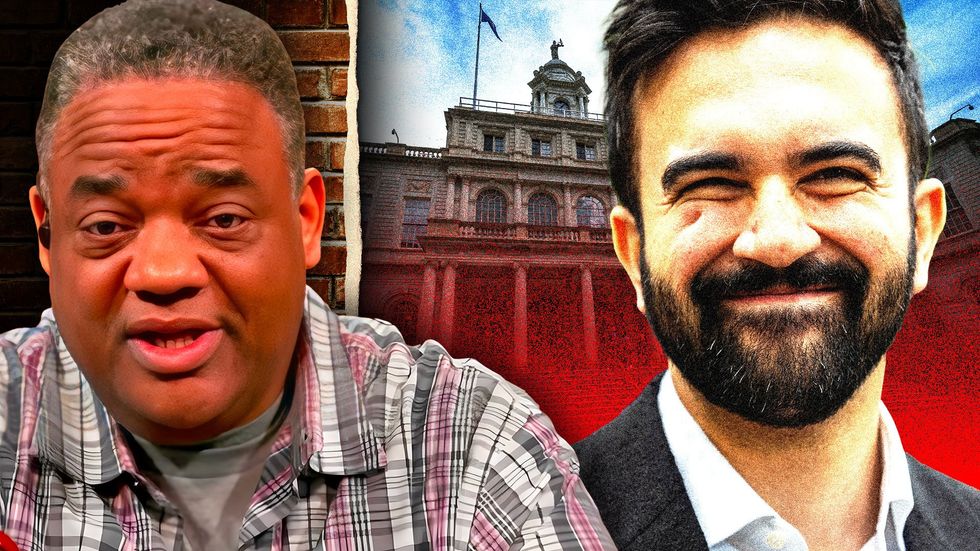
www.thegospelcoalition.org
Shepherd the Flock: Advice to New Elders
You can’t read the book of Acts and the New Testament epistles without seeing the vital role elders play in providing leadership to the church (Acts 14:23; Titus 1:5). Also referred to as pastors/shepherds and overseers (Acts 20:28; 1 Pet. 5:1–2; Titus 1:7), these men are called to lead, teach, and protect God’s flock—always under the authority of Christ, the chief Shepherd (1 Pet. 5:4).
Far more than organizational figures, elders are men of tested character, tasked with modeling spiritual maturity to the congregation (1 Tim. 3:1–7; Titus 1:5–9). They’re also entrusted with spiritual gifts to equip the saints for the work of ministry (Eph. 4:11–12).
But how does a new elder—especially a lay elder (or ruling elder, in Presbyterian circles)—step into that calling with wisdom and clarity? Assuming that character qualifications are in place and that the elder understands the central role of the Word and prayer (Acts 6:4), what practical advice might help him navigate the day-to-day realities of this sacred work?
I asked several friends of The Gospel Coalition who currently serve, or have served, as lead pastors, What’s the best piece of advice or word of exhortation you’d give to a new elder?
Steve Bateman
Play your position. Understand your role in the church. The church is a family that elders love as older brothers, a flock that elders guard as good shepherds, a fighting force that elders serve as commanding officers. Scripture doesn’t require elders to do all the work, but it does require them to oversee the church so that every member comes under the load to accomplish the mission of glorifying God by helping people know, love, obey, and exalt Jesus Christ. When the church functions in a healthy way, elders can focus on their principal duties: prayer and the ministry of the Word (Acts 6:4).
The church will always have both spiritual and physical needs. Faithful, gospel-centered Christians will care for widows—but the Great Commission doesn’t say, “Go therefore and care for widows.” You can care for widows and still neglect the Great Commission, but you cannot faithfully fulfill the Great Commission and ignore the physical needs of others. Both are important, but spiritual needs must take priority. That’s why physical needs should be delegated to qualified deacons, so elders can focus on spiritual oversight.
Many church prayer lists are dominated by requests for physical healing and financial relief, while requests concerning the salvation and sanctification of souls are slim to none. Likewise, many elder meetings are dominated by endless discussions over buildings, budgets, and benevolence, often neglecting the prayer and planning necessary to equip church members to make disciples of all the nations.
What would the apostles say to this? “It is not right” (Acts 6:2). A common error of well-intentioned elders is stepping out of their position in the church to play the position of a deacon. The result is discouraged deacons and a distracted church. As a mentor advised me early in my ministry, “Let the elders ‘eld’ and the deacons ‘deac.’”
Steve DeWitt
You’re beginning a journey of ministry that our Savior highly values. God lauds your willingness to step into this responsibility (1 Tim. 3:1). In my experience, the elders who have led most faithfully are those who approach the role with a servant’s heart, eager to care for the flock (1 Pet. 5:2).
It’s essential to realize that every leadership team has a culture, often formed over many years and through many trials. This culture may have written values. These are important, but it’s usually the unwritten, assumed, and underlying values that you need to understand in order to lead effectively as part of the team. I would encourage you to ask for the stories behind these values. Often, the leadership team went through a great struggle out of which these cultural values were formed. Learn the stories, and you’ll likely learn the why behind the what.
A leadership proverb says that elder teams protect the vision and protect the visionary. While this may exceed true eldering polity, it highlights the need for elders to safeguard the church’s overarching directions and doctrines. You’ll bless your church and team if you help them keep the big picture in view: the glory of God, the gospel, discipleship, evangelism, prayer, congregational unity, and purity. Your wisdom and contribution to the lesser things will be heard and valued as your co-elders sense your true affections for the main things. As you do, you will “pay careful attention to yourselves and to all the flock” (Acts 20:28).
Dan Doriani
It’s essential that new elders get to know their people. Paul says our speech should meet the need of the moment and give grace to those who hear (Eph. 4:29). To do that, we must know the needs of the people God called us to shepherd. The simplest way to do this is to ask open-ended questions, such as “Tell me a little about your faith journey.” Then listen steadily, only rarely sharing parallels or differences from your life. That is, listen more than you talk. Another simple step is to come to church 15 minutes early and stay 15 minutes late, praying for divine appointments with your people. When you step in the building look for (1) your mini-flock and (2) people you don’t know. People who won’t answer a call, text, or email will talk to you when they see you. At church, the conversations will probably last just a few minutes—rather than half an hour that busy people can’t easily spare—and yet we can share prayer requests and updates in that short time—setting up a longer conversation if necessary
J. D. Greear
First, choosing elders wisely means more than simply choosing the most spiritually mature men in your congregation. Of course, we always begin with spiritual maturity as a baseline, and we can allow no compromises here. The apostle Paul makes that abundantly clear in his teaching on elders in 1 Timothy 3 and Titus 1. But Paul doesn’t merely say, “Choose the holiest people and don’t worry about the logistics.” Instead, he lays out practical concerns. Your church needs gifts appropriate to the task of eldering—for instance, teaching, leadership, and administration.
Just think of how you might choose a teaching pastor or a worship leader. You don’t simply choose the most spiritual person or the most passionate worshiper, saying, “I don’t need to know about your specific skills here.” No, you choose spiritual people with the gifts appropriate to the position. Many churches get into difficulty because they simply make spiritual men—prayer warriors—their elders, but these men may not have the leadership gifts appropriate to sit in those seats.
Second, prayer is the ministry. Prayer isn’t what you do before the ministry; it is the ministry. The apostles, for instance, didn’t see prayer as something they did around the margins of their ministry; they saw it as its center. In Acts 6, when the apostles urged the church to appoint deacons to assist in meeting some of the needs in the church, they said, “Appoint [deacons] to this duty. But we will devote ourselves to prayer and to the ministry of the word” (vv. 3–4). Not prayer as preparation for the Word. Prayer and the Word. As indicated by the Greek construction of the sentence, they’re equal parts of ministry.
Far too often, elders’ meetings can feel like business sessions with perfunctory slivers of prayer added at the beginning and end. In the early church, though, prayer meetings—not business meetings—were where the action happened. So rather than feel like business meetings with a sprinkling of prayer, our elder meetings should feel like prayer meetings with sprinklings of leadership and announcements mixed in.
Garrett Kell
Build friendships with other elders (Prov. 17:17). You and the other elders are fighting together against the gates of hell. You need each other. And though you won’t be best friends with every elder, you should pursue personal time with them. Do breakfasts, lunches, or double dates together. Check in to see how you can pray for them and their families. Spend time with them, especially with those you don’t “click with.”
Do all you can to be a “Barnabas” for the other brothers; they will need your encouragement. Be the friend you desire others to be for you (Matt. 7:12). The relationships you build with your brothers will sustain you amid battle.
Bill Kynes
Be a good listener. As you discuss how to handle sensitive pastoral issues, make an effort to discern the values that underlie the views expressed by others in your elder team. What seems most important to them? What are their priorities? These underlying values will differ. We’re united by the clear principles of Scripture, but our perspectives may vary.
Some are motivated by compassion for the hurting, others by maintaining clear doctrinal truths, still others by practical matters in how certain decisions will affect the larger congregation. All these are valid, and all should be appreciated and valued as you seek the mind of Christ in the decisions that need to be made. That takes careful attention and a humble spirit—one that acknowledges that your perspective may not be the only one the Lord would approve of.
Phil Newton
Dear brother, as you embark on the joyous and solemn responsibility to serve your church as an elder, let me encourage you with simple counsel: Know the flock. Shepherding without knowing the sheep will be poorly done. Think about Jesus’s example in John 10. The Lord of the flock has called you not to superficial acts in the field of eldering but rather to care for the souls of those for whom you’ll give an account (Heb. 13:17). Soul care demands knowing the flock well. Although this is daunting, you can know the flock so that you might serve them effectively.
How might you know them?
1. Pray daily for members of the church. Use a pictorial directory to familiarize yourself with those for whom you’re praying and doing soul care. The more you pray for the flock, the deeper you’ll have them on your heart. The deeper they are in the heart, the more effectively you’ll apply the gospel to them. Make it a rule that each week you’ll pray through your membership roll, bearing the flock’s needs before the Good Shepherd.
Soul care demands knowing the flock well.
2. Have ongoing conversations with those you’re shepherding. You will pray and shepherd generically until you take the time to listen to the members’ concerns and feel their burdens. Get to know their voices—not just the intonation but the personalities, challenges, passions, and pursuits that shape them. You’ll find even short conversations opening windows into the soul for prayer and care. They’ll listen to you with greater attentiveness when they know you’ve taken time to listen to them.
3. Make regular eye contact with your flock. I’ve often pondered the work of shepherds in a sprawling pasture. We would look at a flock of sheep and think they all look alike, but that’s not how the shepherd who regularly looks into their eyes and reads their fears, needs, and hurts would see them. Do shepherding work by face-to-face contact with those you’re leading toward living in the fullness of Christ (Eph. 3:14–19; 4:12–13). Learn to read their demeanors to pick up on anything that needs prayer, counsel, and pastoral wisdom. Get to know details about their lives, families, work, burdens, and spiritual walks.
Knowing the flock lays the groundwork for teaching, leading, caring, correcting, encouraging, and being an example for them.
Bobby Scott
“Daddy, are you going to play with us or read books?” More than 20 years have gone by, and I still remember how convicted I felt when I told my beautiful young daughter, “Honey, I’m sorry, I have to read.”
My life was such a whirlwind in the early days of my ministry. It took all the energy I had to keep from getting thrown off the sprint-paced treadmill of my ministry obligations. I convinced myself that I had to teach the Sunday school class, preach for the worship and evening services, instruct the Bible institute class, equip the small group, counsel the struggling church members, and work through all the church issues at the elders’ meetings. Now to add to that, I was tent-making. Where was Moses’s father-in-law, Jethro, when I started pastoring?
My candid advice to new elders is this: Believe what you teach others, and by faith, do that. Love God with all your heart, soul, mind, and strength, and love your neighbor as yourself. Make that the nonnegotiable on your schedule. Practically, that means keep God first by prioritizing your time in prayer and in the Word. If you do that by faith, know that God will enable you to love him and your neighbors (your family and church) without compromising those relationships.
As you keep refueling your passion with your devotion to God, he’ll grant you the wisdom to manage your schedule. Don’t embrace the false guilt of not being able to do everything. Say yes to what you can do for the Lord and no to what keeps you from loving your family. That’s not a compromise; that’s God’s will (Eph. 5:2, 25; 6:4, 23–24). You can do both when you don’t try to do everything.
T. J. Tims
Dear brother elder, as you start your course, my best advice and encouragement, from one elder to another is this: Stay excited about Jesus and his gospel.
You say, “Really? That’s it? Seems kind of obvious.” It’s obvious now. But the burdens of troubled souls haven’t yet begun to stack up. You aren’t yet feeling the daily pressure of anxiety for your church (2 Cor. 11:28). The “concerns” and “suggestions” of well-meaning members haven’t yet begun to roll in. To say nothing of the burden of your own flesh, the antagonism of the world, and the schemes of the Devil—who hates you with a special spite.
When the weight of all this presses down, stay excited about Jesus and his gospel. Say no to meetings if you must—and you must! Everything under the sun contrives to disrupt our connection to Jesus. Remember that after a late night of healing others, the Lord Jesus rose early to be alone with his Father (Mark 1:35). Set your priorities accordingly. Be alone with Christ for your own enjoyment. If you do this, you cannot help but help the people of God.
Be alone with Christ for your own enjoyment. If you do this, you cannot help but help the people of God.
At the end of the day, what you’re excited about is what comes through. Let it be Christ, and this will have a double effect. Not only will the people be built up as your enthusiasm for Jesus becomes their enthusiasm, but Christ himself will carry you and your burdens with you. Stay excited about Jesus and his gospel, and you cannot fail.
Andrew Wilson
My main piece of advice would be to keep your eyes on the whole church, rather than the people who are particularly close to you and/or part of your ministry responsibility.
Scripture calls us overseers: watchmen, supervisors, those who keep an eye on the whole house or city. It’s easy to view events through the lens of our specific ministry area, gifting, interest, or life stage, and tempting to represent (or even be partial toward) particular constituencies in the church, however large or small. Try to avoid that. Step back regularly and ask how this decision or discussion affects the whole church, including the people you wouldn’t naturally think of or even notice. When eldership teams do that, the whole community is better cared for, taught, prayed for, and equipped for ministry.

















